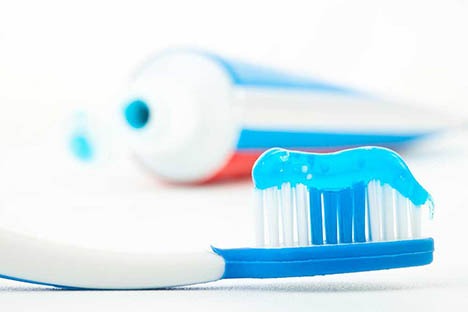
So why is it better to brush before eating breakfast?
Bacteria Plaque grows in your mouth when you sleep
Saliva is nature’s best defense against the plaque that causes cavities and gum problems. There is less saliva production when we are sleeping. Even when you brush before going to bed, there will always be a buildup of the bacteria in your mouth. It is this bacterial buildup that causes morning breath.
How bacteria causes acid level variations in your mouth
The bacteria in your mouth lives on the carbohydrate rich food you eat. They release by-products that are acidic as part of their digestive process. They soak up the sugars from toast and cereals and produce an acidic environment in your mouth. This acid and the acidic food that we eat or drink will weaken tooth enamel and can cause cavities, tooth erosion, and tooth decay.
Brushing before breakfast will help get rid of plaque buildup
If you brush after getting out of bed, it will reduce the bacteria count in your mouth. Brushing gets the salivary flow going. It also brings fluoride into your mouth that instantly hardens the top layers of tooth enamel.
With low bacteria counts in your mouth, the sugars from breakfast won’t be converted into acids. If the bacteria levels are low, your sugary breakfast won’t cause trouble.
Brushing after eating breakfast
Avoid brushing your teeth straight after eating. If you don’t brush when you get up, then the bacteria count will be high when you have breakfast. This guarantees a very acidic saliva for the next 30 minutes. If you brush immediately after eating, the combination of the acids attacking your enamel and the abrasives in the toothpaste can yield a bad situation. The enamel can literally be brushed away.
Brushing teeth after eating is like polishing your teeth with abrasive industrial cleaners. The acid softened enamel will be easily washed away resulting in darker teeth. The enamel layer is white but the layers below are yellow. If this is your morning routine, it is time to change it.
Consensus of Experts say brush before breakfast
For the half of you who can’t wait to get rid of your morning breath, don’t wait until after breakfast. The best time to brush your teeth and gums is as soon as you get up and feel that you have done the right thing.
Studies done by the American Dental Association, Mayo Clinic, and the British Dental Health Foundation have all concurred that you should wait 30 minutes after eating to brush your teeth. This is especially important if you ate acid producing food items. This would include toast, orange juice, most wheat based cereals.
Parents should select an approved fluoride toothpaste. Fluoride serves kids under 16 years of age in two ways. It helps get rid of plaque and it also prevents tooth decay by making enamel stronger.
Whether you brush teeth before or after breakfast, add flossing to your morning routine
While many people neglect flossing, because it seems cumbersome or difficult, flossing is another great way to prevent dental problems. With a little practice it can also be simple, and quickly completed each day. If you are unsure about how to properly care for your teeth, through flossing, talk to your dentist at your next checkup about how to floss, and other tips for protecting your oral health.
Dr Fondriest is a Nationally recognized and highly sought after cosmetic dentist. He serves clients from throughout the United States
